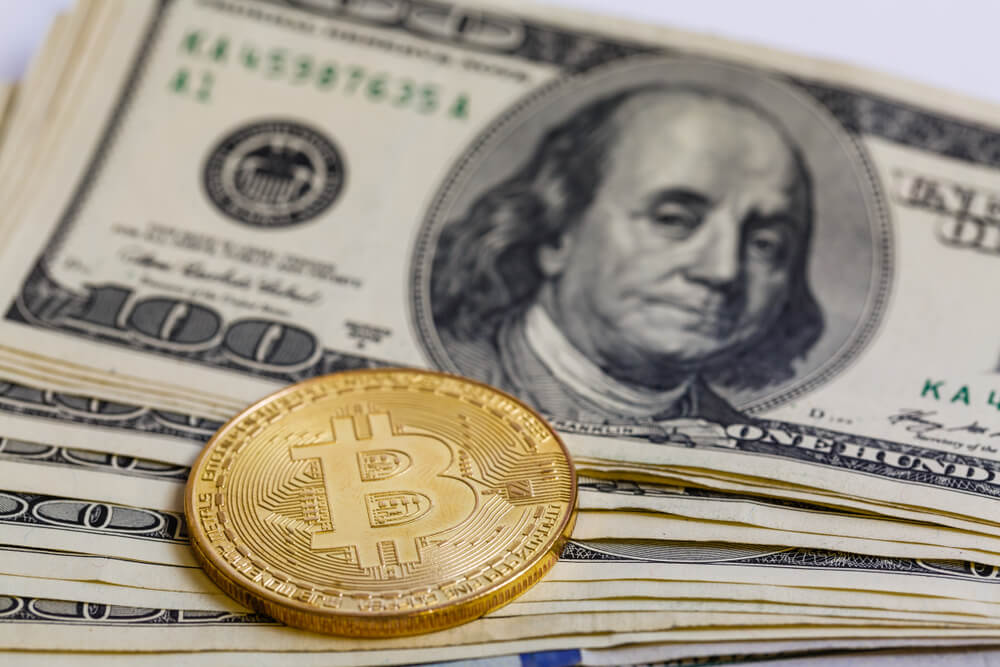Cryptocurrency Use in Illicit Activity ‘Small’ Compared to USD Volume: US Treasury Official

In December, the U.S. Senate Judiciary held a full panel hearing focusing on a bill designed to modernise anti-money laundering (AML) laws, which included looking at the role that digital currencies play.
The hearing on Bill S1241 : Modernizing AML Laws to Combat Money Laundering and Terrorist Financing took place, chaired by Chuck Grassley, a senior U.S. Senator from Iowa, and the current chairman of the Judiciary Committee of the 115th Congress.
Opening the hearing, Grassley said that the introduction of S1241 is designed to give law enforcement the tools it requires to do its job, stating that:
This bill will modernize our AML laws by providing new tools, modernizing methods, and closing loopholes to make sure that law enforcement can prevent, identify, and prosecute those who break the law.
According to a study conducted by the Tax Justice Network, the U.S. is one of the easiest places in the world for terrorists, human traffickers, and corrupt foreign politicians to hide illicit money, said Senator Dianne Feinstein at the hearing, who is backing the bill, adding that:
The bill is intended to address a number of gaps in current law. It is the product of years of work and it builds on the recommendations included in a bipartisan report titled ‘The Buck Stops Here: Improving United States Anti-Money Laundering Practice.’
The hearing, which heard from seven witnesses over two panels, focused on the threat that money laundering, terrorist financing, and other forms of illicit financing pose to the national security of the U.S. and the integrity of the U.S. and international financial systems.
Kenneth Blanco, deputy attorney general of the criminal division at the U.S. Department of Justice, said that as economies and financial systems become increasingly global, so too do criminal organisations.
He said:
Transnational criminal organizations, kleptocrats, cybercriminal groups, terrorists, drug cartels, and alien smugglers alike must find ways to disguise the origins of the proceeds of their crimes so that they can use the profits without jeopardizing their source.
According to the UN Office on Drugs and Crime, it estimates that annual illicit proceeds total more than $2 trillion globally. Some of the money laundering threats that Blanco highlights include illicit cash, trade-based money laundering, illicit use of banks, prepaid access cards, and digital currencies.
The use of cryptocurrencies enables criminals to conduct illicit transactions because they offer potential anonymity, which enables them to move their criminal proceeds between countries, states Blanco. In his opinion, though, some countries have limited AML controls.
As an example, he cites the Drug Enforcement Administration’s (DEA) 2017 National Drug Threat Assessment, which found that China-based firms manufacturing goods used in trade-based money laundering schemes often prefer to accept payment in bitcoin because it can be used to anonymously transfer value overseas, thereby circumventing China’s capital controls. However, many would argue that bitcoin is in fact pseudo-anonymous.
Matthew Allen, acting assistant director of the Homeland Security Investigative Programs and U.S. Immigration and Customs Enforcement, explained that in November 2016 HSI special agents investigated and seized $1.2 million in cash from Utah resident Aaron Shamo, who led a Xanax and fentanyl pill production organization. He then proceeded to sell his illicit products via the dark web where an investigation led to the identity of his digital currency wallet address. According to Allen, agents were able to seize Shamo’s bitcoins, valued at $2.5 million.
Yet, despite this, Jennifer Fowler, deputy assistant secretary for terrorist financing and financial crimes at the U.S. Department of the Treasury, claims that the U.S. dollar continues to remain a popular currency for illicit commerce and money laundering. She adds, though, that the Treasury is continually monitoring the use and development of new payment technologies, such as digital currencies.
She said:
Although virtual currencies are used for illicit transactions, the volume is small compared to the volume of illicit activity through traditional financial services.
Featured image from Shutterstock.